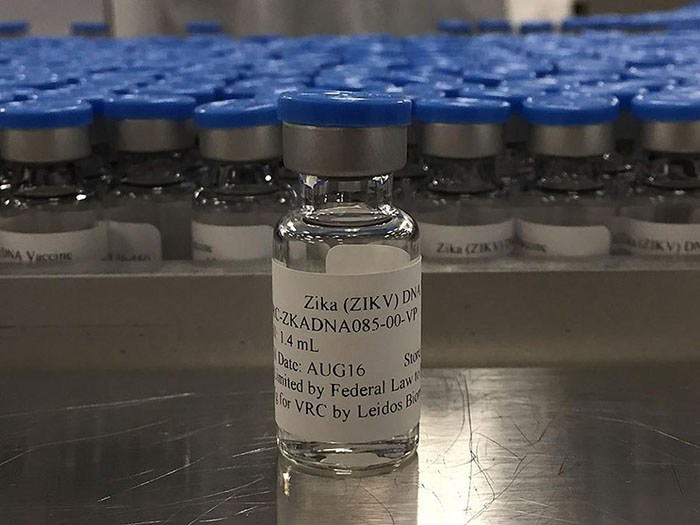NIH-developed Zika vaccine improves fetal outcomes in animal model
An experimental Zika vaccine lowered levels of virus in pregnant monkeys and improved fetal outcomes in a rhesus macaque model of congenital Zika virus infection, according to a new study in Science Translational Medicine. The research was conducted by scientists at the National Institute of Allergy and Infectious Diseases (NIAID), part of the National Institutes of Health, and their collaborators from the University of California, Davis; Duke University, Durham, North Carolina; and the University of California, Los Angeles. NIAID scientists developed the experimental vaccine and currently are evaluating it in a Phase 2 human clinical trial. The vaccine uses a small circular piece of DNA, or plasmid, containing genes that encode Zika virus surface proteins to induce an immune response.
Zika virus is primarily transmitted to humans by Aedes mosquitoes; it also can be transmitted through sex. The virus can cause serious birth defects in babies born to mothers who become infected during pregnancy. Ideally, the authors note, a Zika vaccine would be given to adolescents and adults of childbearing age before pregnancy to prevent congenital Zika syndrome.
Large outbreaks of Zika virus in the Americas in 2015 and 2016 led to thousands of cases of congenital Zika syndrome, prompting NIAID scientists to quickly develop and begin clinical trials of the NIAID DNA Zika vaccine. While clinical trials can yield data on safety and how the vaccine performs in recipients, due to the diminished incidence of Zika, conducting a clinical trial that would determine the vaccine’s ability to prevent adverse fetal outcomes has been logistically difficult. Therefore, researchers developed a macaque model of congenital Zika syndrome to provide another way to evaluate the experimental vaccine.

A vial of the NIAID Zika virus investigational DNA vaccine, taken at the NIAID Vaccine Research Center’s Pilot Plant in Frederick, Maryland.
This page was last updated on Friday, January 21, 2022